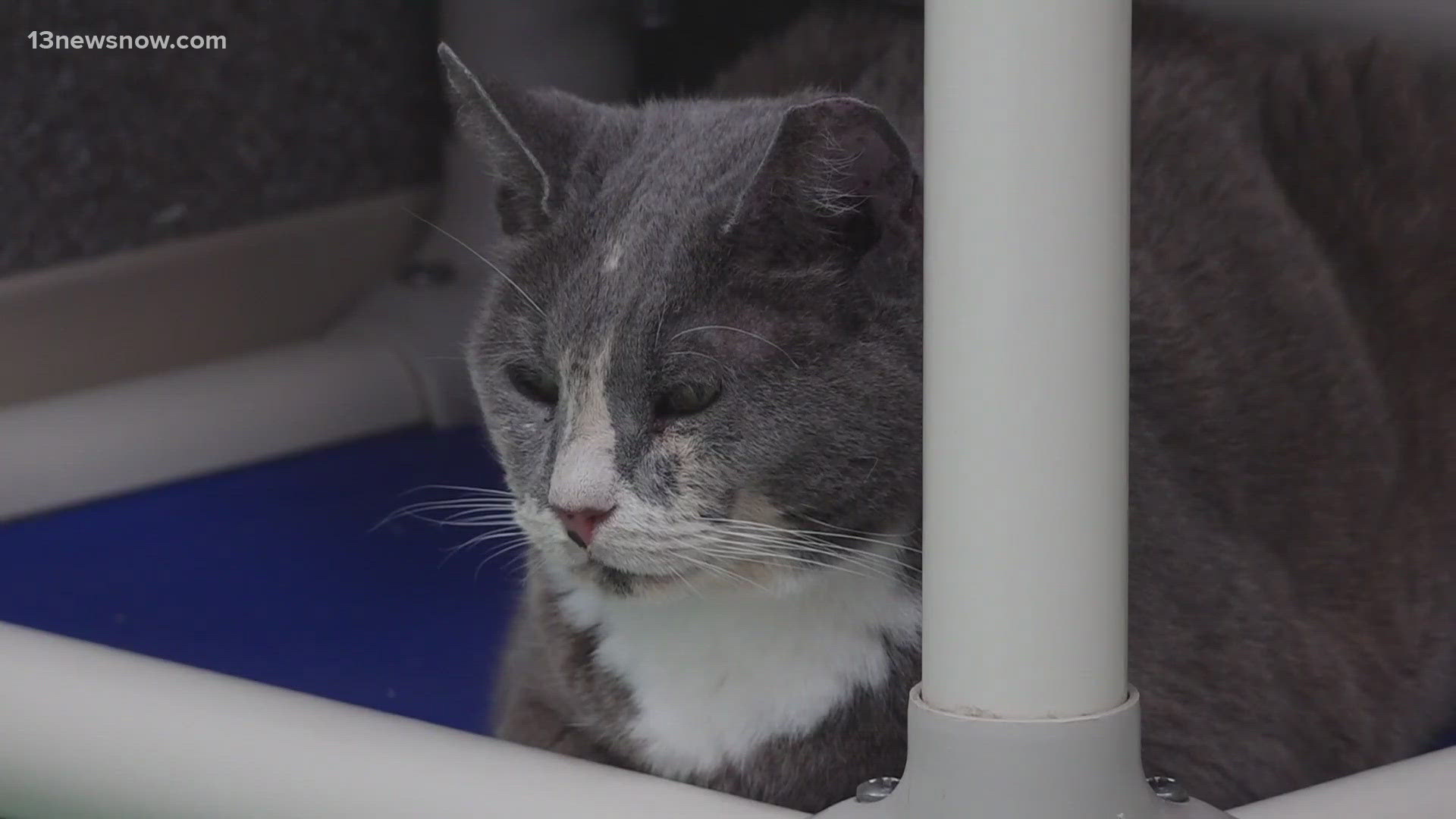VIRGINIA BEACH, Va. — Virginia Beach animal shelter Hope for Life Rescue announced on Facebook Monday that it's pausing animal intakes for the time being.
In the post, staffers wrote, "Since May, we have had hundreds of spay/neuter appointments canceled or extremely limited at the low-cost clinics we work with due to a vet shortage. This has left us scrambling to find other veterinary practices to work with, and unfortunately the cost to spay and neuter at other places have often exceeded the adoption fee we charge."
Hope for Life director and founder Pauline Cushman told 13News Now that the shelter needs about $30,000 to offset costs.
"It’s absolutely the worst feeling I’ve ever had, you know?" she said. "We’ve never been in this place before, and it’s been very difficult."
HFL opened in 2002 and Cushman said the rescue typically takes in about 100 animals every month.
"We get about 100 or so emails every day asking for help from different shelters; not only just locally, but around the country," Cushman explained.
Cushman said the local clinic that usually spays/neuters 40-50 pets each month canceled hundreds of appointments starting in May due to veterinarian shortages.
"Our costs actually doubled for our spays and neuters, which also threw us into a financial turmoil," she said.
The rescue has also been working on removing animals from a hoarding situation in North Carolina, according to staff.
"The animals that we were working within this hoarding situation have come out of horrible conditions, and we've spent thousands and thousands of dollars trying to get them well," Cushman explained, adding the rescue has taken in 18 animals from that home so far. Hope for Life will take in the animals it's already committed to while halting all other intakes for the time being.
Rescue staffers say they need about $30,000 to offset the costs they've incurred over the past few months. Cushman said, "We have wonderful donors to begin with, and they're very supportive. We work solely on donations from the public. Our vet bills right now are $256,000 today, versus last year, only $190,000 at the same time. Money's the first thing we need."
People can also donate their time through the shelter's foster and puppy sleepover programs.
The veterinarian shortage isn’t just a local problem. The American Association of Veterinary Medical Colleges released a statement in March 2024 saying in part, “Analysis of this U.S. market indicates that over 50,000 additional nurses/technicians are needed to maximize productivity in companion animal practice today. Further, it would take 30 years of these graduates at current training capacity to meet projected needs in 2030. Clearly, this is not an immediate solution."
PETA has four spay/neuter clinics that travel throughout the area. Rachel Bellis, who is PETA's director of local affairs in the cruelty investigations department, said appointments are booked solid through December.
"[Pets are] not getting spayed or neutered, they’re not getting the help they need, they’re reproducing," Bellis explained. "It’s just a vicious cycle that keeps continuing."
Bellis told 13News Now veterinarians leaving the profession for a variety of reasons during COVID-19, combined with people purchasing/adopting pets exacerbated the issue.
"The lack of spaying and neutering that happened bolstered animal populations. We definitely need more good-hearted veterinarians. PETA's been getting more calls than ever for veterinary care," she said.
More information on PETA's mobile clinics is available on the organization's website. Those interested in making a monetary donation to Hope for Life Rescue can click here.

